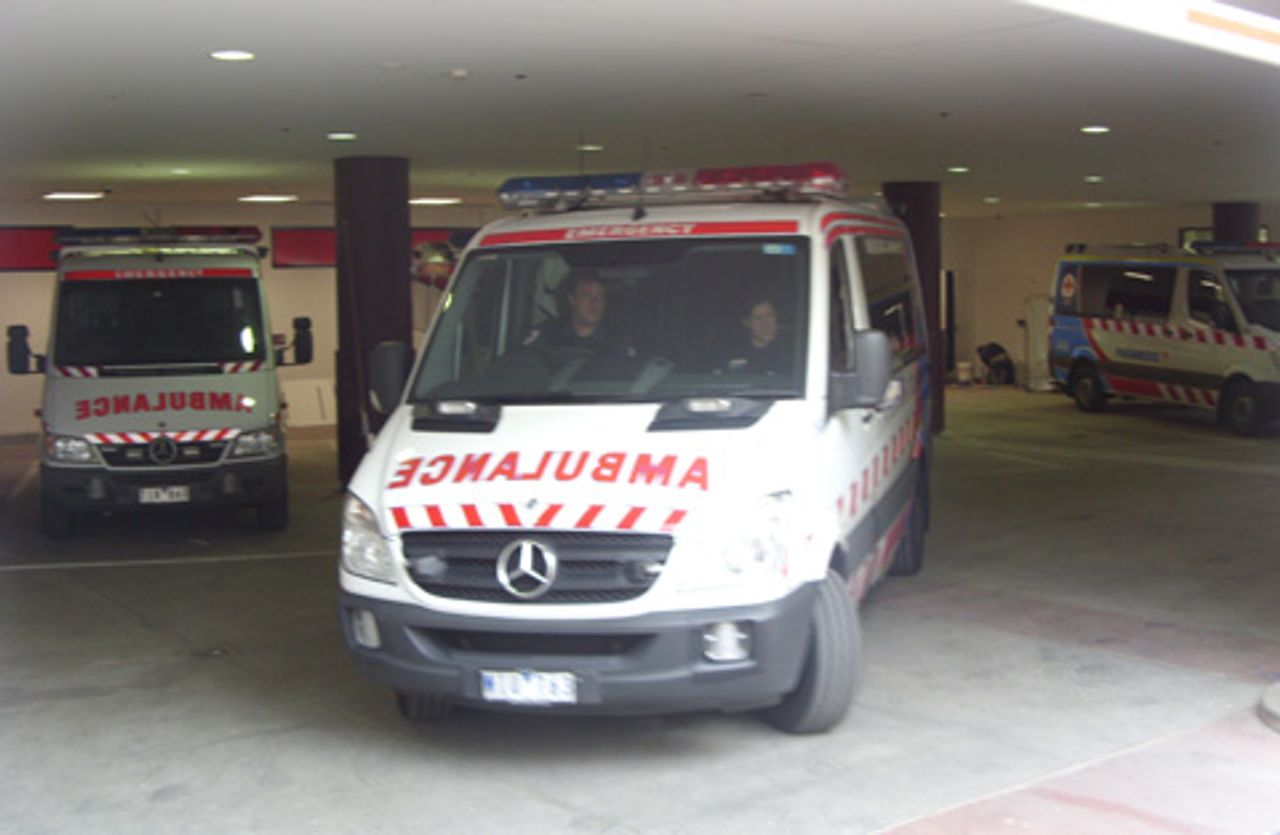Click here to download the article in PDF
Fair Work Australia (FWA), the Labor government’s new industrial relations tribunal, yesterday banned planned strike action by ambulance paramedics in Victoria. FWA senior deputy president Les Kaufman declared that the industrial action would increase ambulance response times and “threaten or endanger welfare”.
Kaufman ordered Ambulance Victoria and the paramedics’ union, the Ambulance Employees Association, to hold further negotiations over 21 days to resolve the dispute. One paramedic told the World Socialist Web Site today that they had been threatened with the sack if they spoke with the media during this period.
The ruling represents a major attack on ambulance workers’ right to take industrial action for better wages and conditions. It also underscores the vicious anti-working class character of Fair Work Australia, which came into effect on July 1, after the Labor government of Prime Minister Kevin Rudd pushed it through parliament. The new system was designed to facilitate the government’s assault on workers’ wages and conditions and upholds a series of anti-democratic restrictions and prohibitions on industrial action under the previous Howard government’s WorkChoices regime. The trade unions have done their utmost to keep workers in the dark, hailing the introduction of Fair Work Australia as a “victory” at the beginning of the month.
 Victorian ambulances
Victorian ambulancesThe FWA’s ruling on the paramedics’ strike—one of the first issued in its three-week existence—establishes a precedent with potentially far-reaching implications. As strikes that may “threaten or endanger welfare” are now to be prohibited, the right of workers to take industrial action across the entire health sector, as well as in other important services and industries is now in question.
Kaufman’s allegation that the paramedics were endangering lives was baseless and provocative. The proposed strike action today—which would have been the first in Victoria in 36 years—would have affected 50 out of 400 shifts, spread out over a four hour period across the state. The Ambulance Employees Association had stressed that the action was aimed at Ambulance Victoria and the state Labor government of Premier John Brumby, and that public safety would not be compromised.
The paramedics are demanding a 6 percent annual wage rise for the next three years—delivering parity with nurses and other similar healthcare professionals—and an end to unsafe working conditions, including a minimum 10 hour break between shifts.
At present, Victorian ambulance workers receive just 8 hours between back-to-back shifts of up to 14 or 15 hours each, sometimes without a meal break. The eight-hour break is grossly insufficient, with paramedics unable to go home, eat, and get proper sleep before commencing work again. A survey conducted by the AEA last year found that 75 percent of paramedics reported making mistakes, including falling asleep while driving and administering the wrong drugs, because of fatigue. More than one-quarter—27 percent—reported a diagnosed medical problem linked to work related fatigue.
An additional two hours break would represent a certain improvement but would certainly not resolve the issue of paramedic fatigue. The Brumby government and Ambulance Victoria nevertheless refused to back down during negotiations on the new Enterprise Bargaining Agreement, which began 15 months ago.
The Labor government clearly intends to send a signal to other sections of the working class, particularly in the public sector. As the impact of the world economic crisis hits the Australian economy, no concessions on wages and conditions, however limited, will be tolerated. The paramedics’ dispute follows the West Gate Bridge standoff, in which the Brumby government deployed hundreds of police against construction workers in a vicious show of support for the large construction companies. Several workers still face serious criminal charges for their role in the picket action (see: “Court hears criminal charges against West Gate Bridge construction workers”).
The paramedics have imposed limited work bans over the last eight weeks, including establishing their own minimum 10-hour breaks, providing free services, and boycotting the government’s computerised patient care record system. Ambulance Victoria management has responded by docking workers pay by four hours for taking 10-hour breaks and for talking to the media about their working conditions.
After the strike action was announced, the Brumby government brought the case before Fair Work Australia, seeking an injunction banning the action. The premier subsequently hailed the ruling as a “great outcome” and a “common sense decision which puts the health and welfare of Victorian families at the forefront”.
The government’s extraordinary hypocrisy will no doubt further outrage paramedics. AEA state secretary Steve McGhie warned yesterday: “Paramedics are so angry and frustrated by Premier Brumby they are ready to snap.... Countless paramedics have told me that they will do whatever is necessary to win a safer ambulance service for all Victorians.”
McGhie said he disagreed with the FWA’s finding that the strike would have put the public at risk, but added: “that’s the decision of Fair Work Australia and we accept that decision”. He declared that “at this stage unprotected strike action is not an option on the table”, and said the union would now merely consider imposing an overtime ban.
If paramedics leave the struggle in the hands of the union leadership, the imposed 21-day bargaining period will likely end in a rotten compromise with Ambulance Victoria—or a ruling by Fair Work Australia leaving in place unsafe working conditions and inadequate wages. The AEA and other trade unions are above all concerned to isolate the paramedics’ struggle and prevent the emergence of any independent political movement, linking paramedics with other public sector workers, car and construction workers and others facing attacks on their jobs and conditions, that is directed against the forces responsible for the current situation—the Rudd and Brumby Labor governments.
